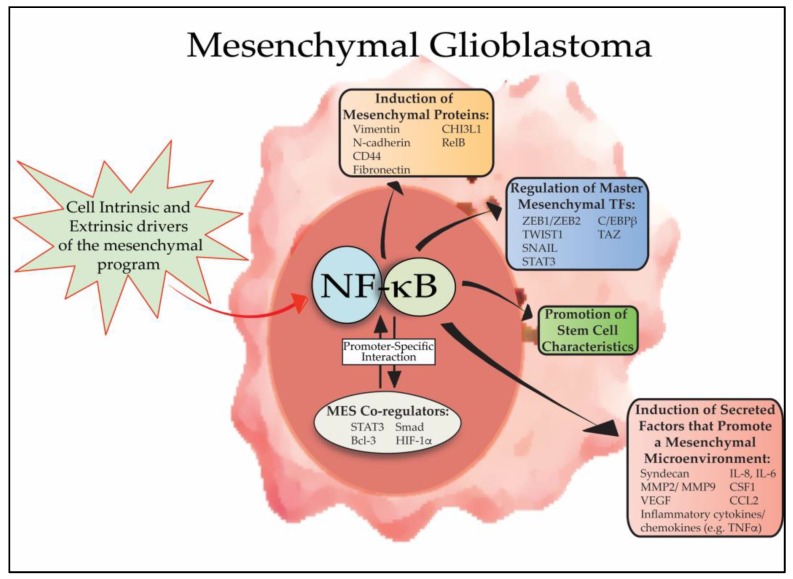Figure 1.
Overview of the role of NF-κB in GBM mesenchymal differentiation. NF-κB is activated in mesenchymal GBM cells by a series of cell intrinsic and extrinsic signals (e.g., genetic alterations and microenvironmental cytokines, respectively) that promote mesenchymal differentiation. Subsequently, nuclear NF-κB promotes mesenchymal differentiation by inducing the expression of master mesenchymal transcription factors, including, STAT3, CEBPB and TAZ, and by directly inducing expression of mesenchymal proteins such as CD44, vimentin, N-cadherin. In addition, NF-κB promotes mesenchymal changes in the tumor microenvironment by regulating the composition of secreted cytokines, ECM proteins and other enzymes to promote invasion, angiogenesis and resistance to therapy. Active NF-κB promotes mesenchymal differentiation in conjunction with other transcription factors and co-regulators, such as STAT3, Bcl-3 and HIF-1α.

